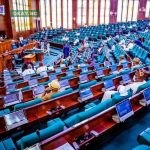The Senate, yesterday, resolved that if the current clash between herdsmen and the farmers, which has led to massive killings and destruction of property across the country must be nipped in the bud, herdsmen should be given unspecified low interest loans to enable them establish ranches in different parts of the country for their businesses.
The Senate also said the nation’s basic security infrastructure must, as a matter of urgency, be comprehensively reviewed and strengthened, noting that poverty has remained a constant threat to national security.
Adopting the 38-page report of the Ad-hoc Committee on the review of the current security infrastructure in Nigeria of the Summit on National Security organised by the Senate February 8-12, 2018, the Senate also resolved that there was the need to isolate current security challenges from political partisanship, narrow political interests and ethno-religious sentiments.
In the report presented by chairman of the Committee and Senate Leader, Senator Ahmad Lawan (APC, Yobe North), the upper chamber equally said political office holders and all sources of influence should restrain tendencies to further complicate and worsen the nation’s current challenges.
It added that Non-Governmental Organisations, civil society and socio-cultural groups should explore avenues to engineer wider and substantial national consensus around reducing tensions and stresses, particularly with the advent of active political/electoral activities.
According to the report, it has become imperative that activities towards the 2019 elections do not fuel further deterioration in the nation’s security.
The committee in the report had made 18 recommendations, but the additional one which made it the 19th recommendation that soft loans be made available to herdsmen to establish ranches was raised by Senator Atai Aidoko Ali (PDP, Kogi East) and it was unanimously adopted by senators.
The Senate also identified lack of collaboration and coordination among the heads of the nation’s security agencies, adding this had contributed immensely to many security challenges and the unnecessary rivalry among them.
In the report, the Chief of Army Staff, Lt. General Tukur Yusuf Buratai, the Minister of Interior, Lt. General Abdulrahman Dambazau and others in their various presentations, attributed the problem to lack of coordination, as well as inadequate intelligence information sharing mechanism among security agencies.
It noted that this has really affected the performance of the agencies in addressing the security challenges in the country.
According to the Senate, leaders of these security agencies in the country in an attempt to claim superiority or out of sheer ego have sometimes failed to share or cooperate with sister security agencies for maximum benefit.
It added that poor or lack of cooperation and collaboration among or between security agencies had contributed to the failure of many operations.
The report read: “The Nigerian political structure should be a major factor in this review, as well as the nature of the challenges the nation faces. There is a strong case for review of the nature of the federal system which should be pursued with responsibility and strong political will.
‘’Managing national security requires an enlightened and constructive approach involving all arms and levels of government, as well as major inputs of key political influences across the nation.
‘’It is vital that strong initiatives towards addressing key components of our federal system, of which managing security is one, should be addressed through legislation and an inclusive political process.
“The basic structure in the management of national security should be revisited by the Presidency to address weaknesses in coordination, collaboration and synergy. Clear lines of authority should be identified, and officers and persons trusted with responsibility for national security should be held accountable.
‘’Unhealthy rivalry and competition which currently characterize relations among key security agencies and officers must be eliminated immediately.
“All the nation’s security assets are dangerously stretched by current security challenges. There is the need to increase the size of the Nigeria Police, the military and other para-military agencies.
‘’Recruitment, training and deployment must be strictly governed by suitability and other professional considerations. Funding of our security assets should be improved, while levels of accountability on the part of the military, police and other agencies should be strictly enforced.
“Collaboration between Federal security and law and order agencies and sub-national outfits needs to be reexamined in the context of demands for improved security, and the imperatives of reducing exposure of citizens to extra-legal influences.’’
‘’ There is a need for closer collaboration with outfits that satisfy requirements of the law, while sensitive issues such as bearing of arms and crime management should be more closely monitored by government agencies.
“Technology should be built into the core of national security architecture and management, and an informed investment strategy into relevant technology in areas of intelligence and data collection should be adopted and implemented without delay.’’






